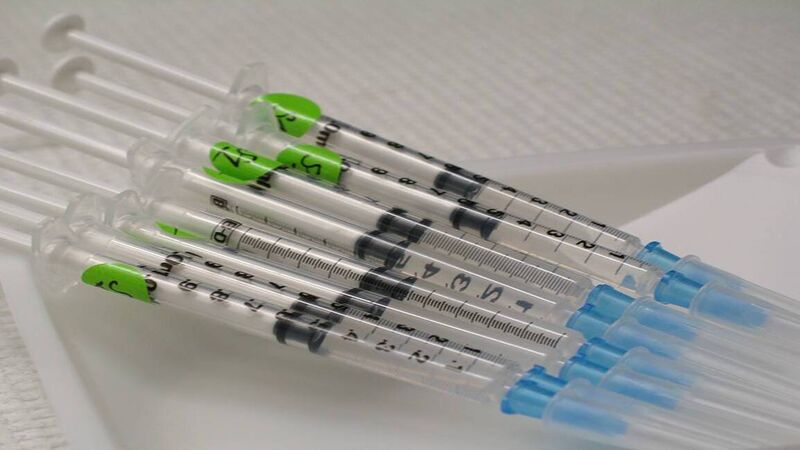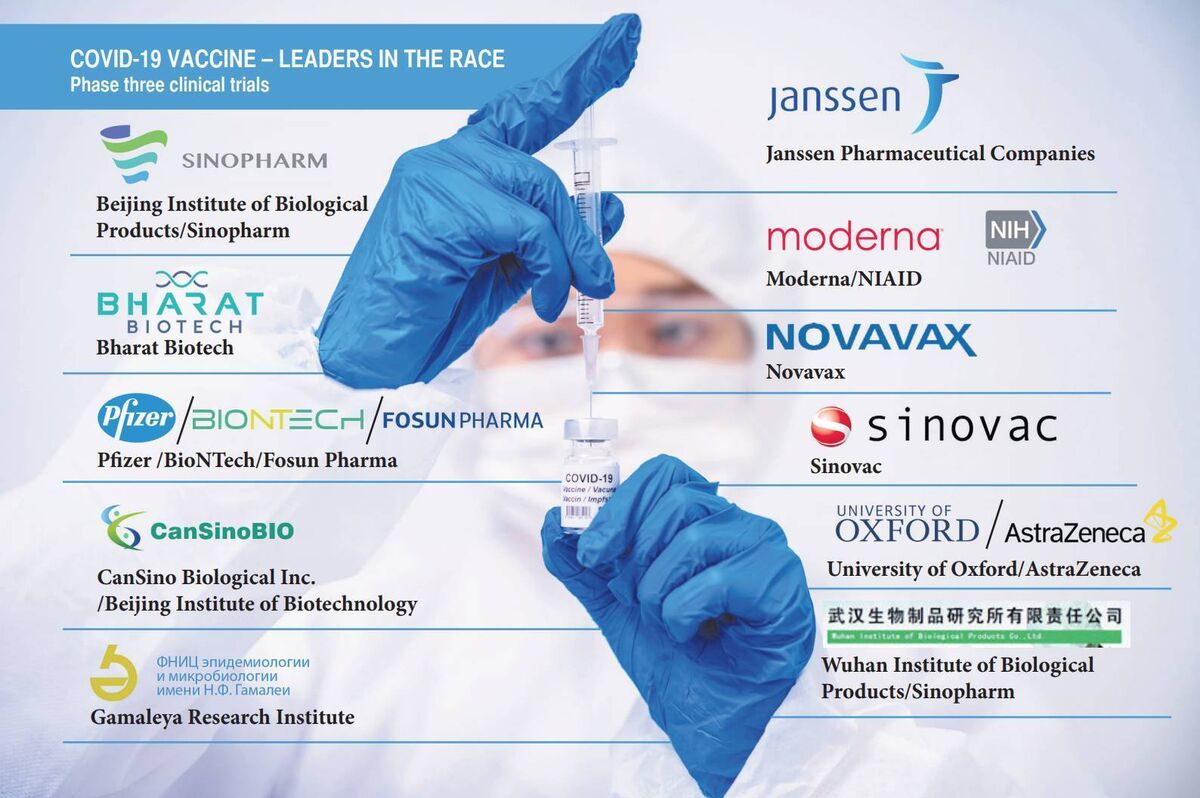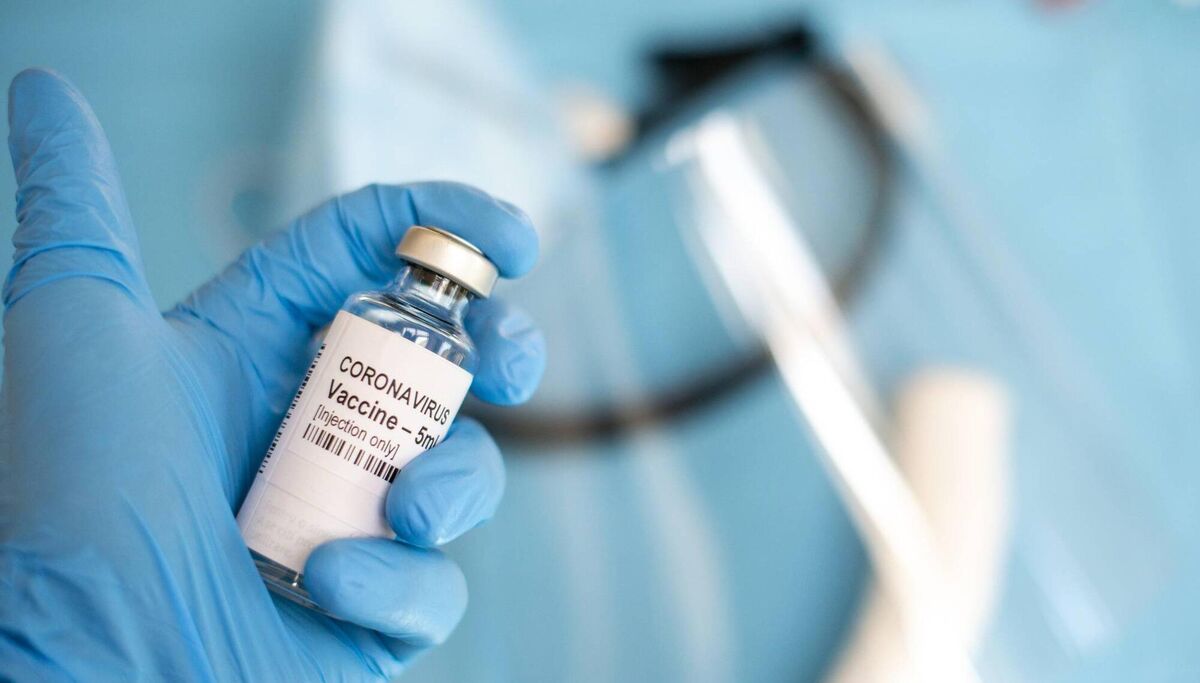Analysis: Science may have the answers, but more time is needed to crush Covid-19

In normal times, regulators would take at least three months to review clinical trial data, but Covid-19 has fast-tracked the process.
A scientific breakthrough this week raised hope that 50m doses of the first Covid-19 vaccine could be made available before the year is out.
News that Pfizer/BioNtech’s mRNA vaccine could be 90% effective at preventing illness from Covid-19 sent tidal waves of hope around the world. There may be an end in sight.
The vaccine is among 11 in phase-three clinical trials, or at the final hurdle before seeking approval and getting licenced, raising hope that we could see vaccination programmes being rolled out next year.
Moderna’s mRNA vaccine and Oxford University and AstraZeneca’s vaccine are also near the front in the race, while researchers in Russia claim that their vaccine may be 92% effective.
In a bid to keep pace with developments, the European Commission has signed deals with Pfizer, Moderna, AstraZeneca, Sanofi-GSK, Johnson & Johnson (Jansen), and CureVac and committed to giving around 1% of stocks secured to Ireland.
Of 300m doses of the Pfizer/BioNtech vaccine earmarked for the EU, Ireland stands to get over 2m doses, which could vaccinate more than 1m people.
Taoiseach Micheál Martin said the EU agreement would be “very significant” for Ireland in terms of targeting vulnerable and “priority” groups.
A ‘high-level’ Covid-19 vaccine taskforce has been set up to ensure the country is primed and ready to distribute new vaccines as they emerge.
The ‘per dose’ cost of the EU vaccine deal remains under wraps, but Doctors Without Borders (Médecins Sans Frontières) has called for greater transparency on all licensing agreements, clinical trial costs, and data.

“As long as we don’t know what’s in these deals, pharma will continue to hold the power to decide who gets access when, and at what price,” MSF senior vaccines policy advisor, Kate Elder, said.
How much a Covid-19 vaccination programme will cost the State has also yet to be determined but the Department of Health said the costs will balance out.
“While no specific funding was set aside for Covid vaccines in Budget 2021, should a vaccine or vaccines become available, necessary funding will be forthcoming,” a spokesperson for the Department said.
“A successful vaccine programme would result in a reduction in expenditure on other Covid-related measures that is likely to outweigh the cost of the vaccine,” they added.
Although the progress made in less than a year is unprecedented, there is still a way to go in the race for a Covid-19 vaccine.
Each vaccine will need to be validated to ensure it is safe and effective for use in humans.
There is also a question over how long new vaccines will protect against the virus, something Pfizer/BioNtech has yet to confirm.
A vaccine with 100% efficacy and offering life-long protection, like that for yellow fever, would be the ideal, Dr Anne Moore, senior lecturer in biochemistry at University College Cork, said, but may not be achieved in reality.
The minimum standard being considered for emergency approval, given the urgency of the pandemic, is a 50% efficacy rate.
How much of an immune response is triggered by new vaccines and whether the level of antibodies generated can fend off the virus is also unclear at this stage.
“The best-case scenario is that you wouldn’t need a high level of immune response but we just don’t know yet,” Dr Moore said.
“A decision will be made more quickly than normal but it is still the same process,” Dr Moore said, stressing that the scientific rigour will not be compromised.
Cutting corners is not an option, she said, adding that it would be “devastating” to lose the trust people have in vaccines.
In the meantime it is a “waiting game”, Dr Moore said, adding that vaccines will not offer an overnight solution.
While Dr Moore remains optimistic that we could see vaccines coming through as early as Easter, she cautions it will take more time to see the impact of any Covid-19 vaccine.

“It’s going to take time. We need to understand that it’s a process that takes time and we need to keep up the other public health measures that are in place,” she said, adding that it took one to two years for a polio vaccine to take effect in Cork in the 1950s.
“It’s not going to change things overnight. It will be six to nine months before we see a real shift from where we are at the moment,” Dr Moore said.
Public health expert Professor Anthony Staines agrees that a vaccine against Covid-19 will not provide a “miracle solution”.
“We’ll be looking at next autumn before we see a vaccination programme being rolled out to the general population.”
While promise of a vaccine is a “huge step forward”, he warned that the country may need to remain at level 3 restrictions until “most” of the population is vaccinated.
“We need to stay at level 3 until most people get vaccinated or until we eliminate Covid-19,” the Dublin City University Professor said.
In the meantime, the current “short-term” public health approach being adopted could allow for another two Covid-19 waves and lockdowns next year, he warned: “Hopefully a vaccine will work and be safe and effective but it’s what happens until then. There is plenty of time to have two more lockdowns."





